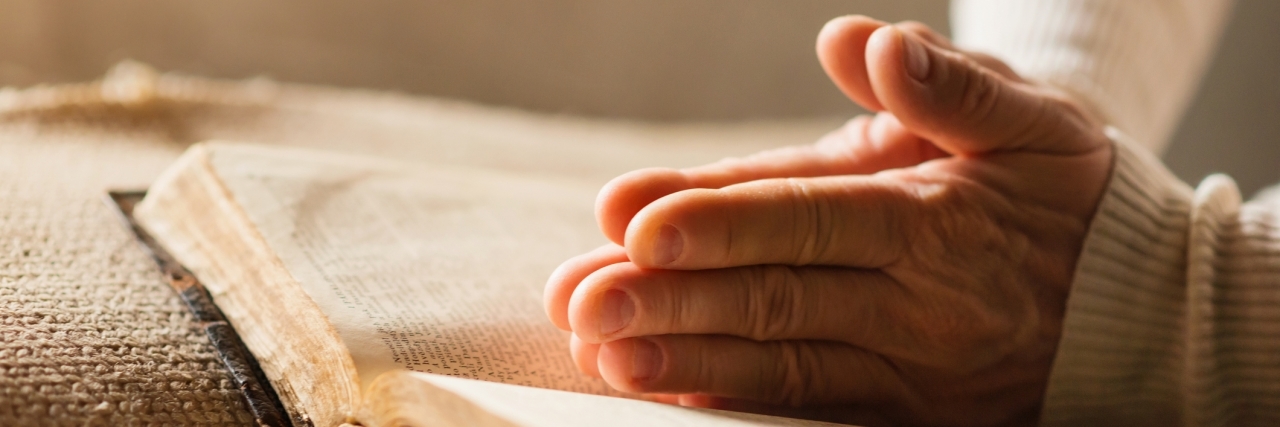I’ve learned a variety of coping skills throughout my time spent in therapy, but the one that works best for me is one I learned as a small child in Sunday school.
• What is Bipolar disorder?
When I’m hit with bipolar depression, the first thing I do is shut down. I lock myself in my room and cocoon myself in the blankets on my bed in complete isolation.
I know isolating myself isn’t healthy. I know when I experience bipolar depression, holding in my thoughts and emotions makes it worse. But even though I know my silence is unhealthy, I can’t bring myself to open up to those close to me – even my therapist.
Talking through bipolar depression is helpful and therapeutic for many people, but I can’t do it. So instead, I pray.
Praying helps me cope with bipolar depression for many different reasons. It’s my favorite coping mechanism because it’s easy, it’s comforting and it’s private.
Talking about my negative thoughts and unpleasant emotions is hard for me, but praying about them is easy. I simply close my eyes and mentally let go of everything that is bothering me. When I pray, I don’t have to explain how I’m feeling to someone who doesn’t understand my bipolar disorder. When I pray, I just talk to God, and I’d like to think He gets it and doesn’t need an explanation.
Prayer brings me comfort because I know when I pray, God is listening and really hearing me. It’s comforting to know my struggling is important to Him when it may not be to anyone else. I feel comforted when I pray and consoled when I’m at my saddest and weakest point.
One of the reasons I can’t open up to my friends and family is because I’m afraid they won’t keep our conversation to themselves. I’m also afraid to be criticized for how I’m feeling. But with prayer, I know the conversation is private, so I feel safe enough to share my darkest thoughts and feelings. I know when I pray, there will be no criticism or gossip. Praying is private; it’s a safe way to rid myself of my innermost negativity.
During a depressive episode, I am full of negativity and sadness. I know not to bottle those things up because of what they might turn into, but I have a hard time uncorking that bottle.
I know I need to work on communicating with others about my bipolar depression, and I am actively trying. But in the meantime, and until I’m ready to talk, I will pray. I will pray about my bipolar depression and everything it brings because it helps me – more than than any other coping skill I’ve learned so far.

